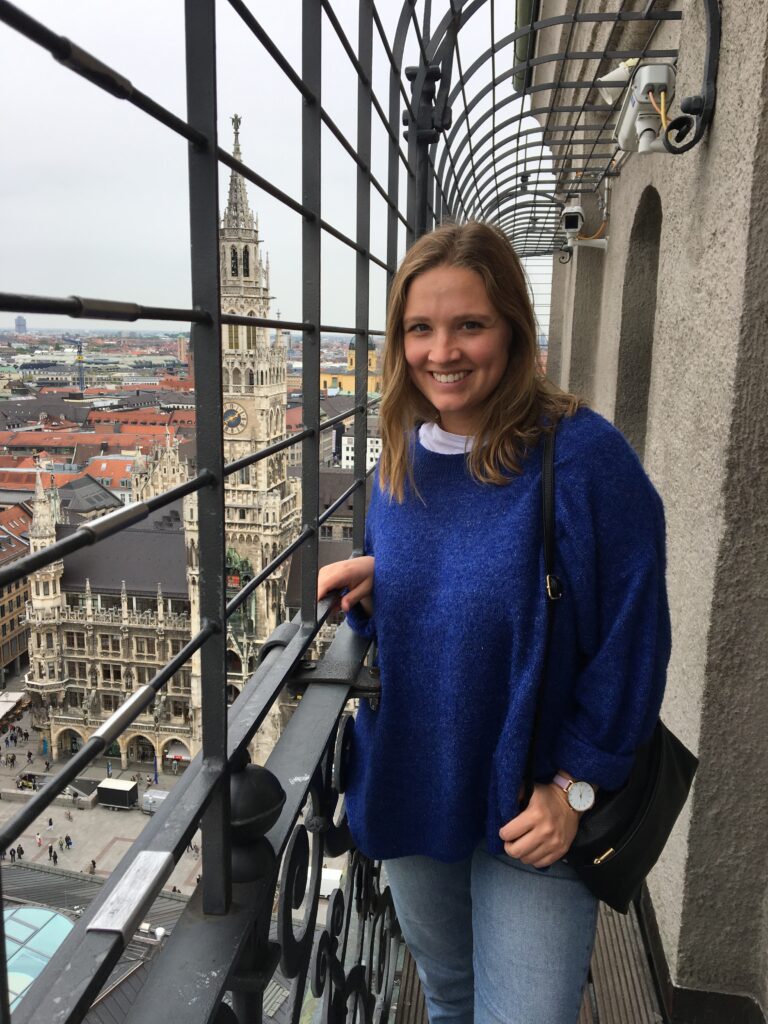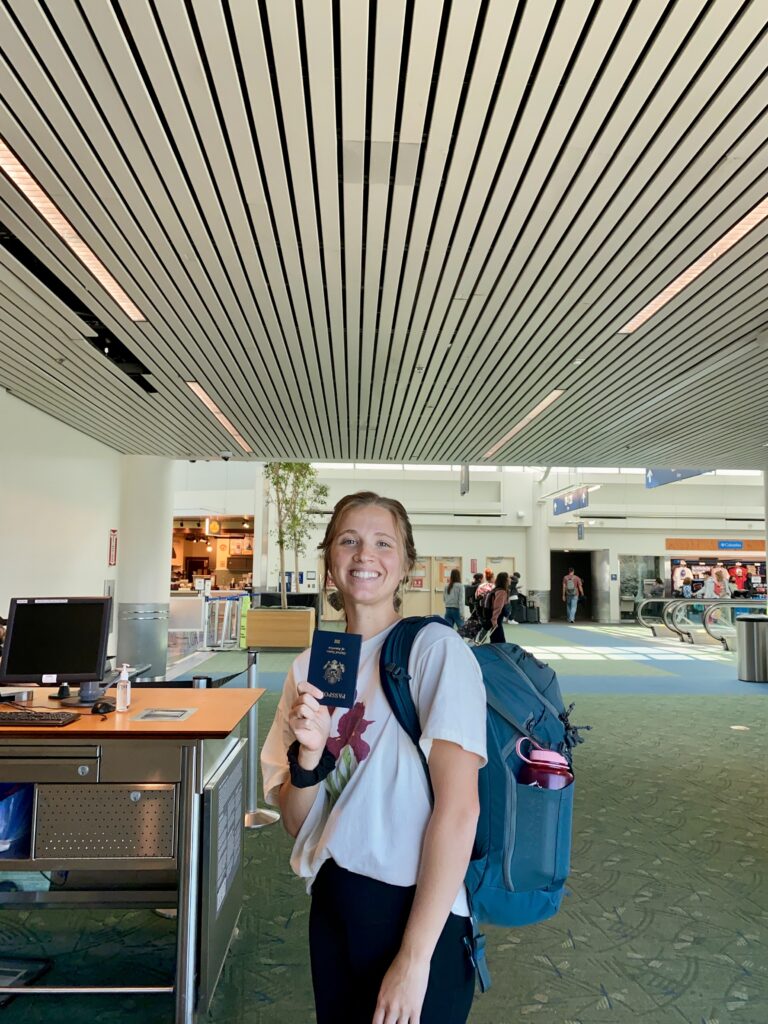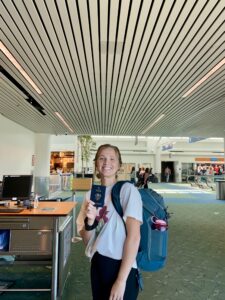
How to Become an Au Pair
Your Guide on How to Live Abroad as an Au Pair: Where to Begin, What to Know, and What Questions to Ask.
I lived and worked abroad in Germany as an Au Pair.
This is how I moved to Europe legally, for 1 year, and how you can too.
Trying to figure out how to live abroad? I highly recommend looking into becoming an Au Pair.
As an au pair, you will provide child care for your host family and your host family will provide you a place to live, food, and a small monthly stipend. I was an au pair in Munich, Germany for 1 year. During that time, I had a year long visa, insurance, and traveled to 10+ different countries within Europe. This is how you can do it too.
Especially if you are between 18-26 years old, becoming an au pair might be your next great adventure. While you can be of any age, many au pair visas/contracts have an age limit, usually around 24-26 years old. Additionally, most au pairs live with the family you work for and personally, the older I get, the more impossible it seems that I did that. Another small note, while men and women can both be au pairs, I will say the majority are women.
Along those lines, most host families are looking for an English speaker to teach their children English, so fluent English is usually a highly sought after trait. If you aren’t fluent in English, however, don’t lose hope! I knew a couple of other au pairs that were from France and Italy that were au pairs in Germany as well. While they all had a basic knowledge of English, they spoke German with their host families. As long as you have an overlapping language, you should be able to find a host family. Also, as they were EU citizens, they did not need a visa to work.
While there are a couple ways of legally working in another country, including WWOOF (helping on farms for room and board) or teaching English, I found becoming an au pair was a relatively easy way to live in Europe for the year on a budget.
Disclaimer- I am a US citizen, so this is accurate from my perspective as an English speaking US citizen, at the time that I went in 2018.
My Story:
I just graduated from University and had no idea what I wanted to do. My friend and I took a trip to Europe in my 3rd year of school, and I knew I wanted to go back. I grew up watching children/babysitting neighborhood kids, heard about being an au pair through a friend and looked into it!
When I heard that host families will usually help you with your visa and provide housing, I knew that’s what I wanted to do.
Being an au pair is not the only way to live abroad and work, but a relatively easy option. Another easy option is teaching English. Other options are a bit more difficult to get a visa for, but you could do smaller things for up to 3 months, like working at a hostel for room and board or find a family to babysit for off the record. These options are a bit more independent. With being an au pair, you have the host family to help you settle into the new country.
Where to Start:
I used the website Aupairworld.com. This is a “matchmaking” site used to help connect potential host families who want an au pair and potential au pairs. You make a profile, add in personal photos and information, add in your preferences, and then you can see families that match. It is similar to dating sites in a way.
Families that are looking for an au pair pay a fee to make an account. Potential au pair accounts are free. As the potential au pair, you do not need to pay to create a profile. Because the families pay, this helps to cut down on potential spam accounts and you know these families are serious about finding someone.
First, research which region, country, and city you want to live in. This will determine what visa you can get, how the process will go, and what your life will be like! In many countries in Europe it is very common to host an au pair. Spain, Germany, Italy, Austria, and France are some of the most popular countries to host au pairs, but there are other places, like Australia or Japan you can go to as well. Take a look at all the offerings on Au Pair World and do some research. For me, I chose Munich, Germany.
I chose Germany, but almost went with Spain. Knowing some Spanish, I thought it would be a logical choice, but Germany just felt so new, exciting, and foreign, that I just went for it!
After choosing a country, you will need to choose a city or area. I would recommend doing some research for this part and asking yourself some important questions.
Here are some to get you started:
- What kind of places do you like to live in? Metropolitan, rural, population size, hot, cold, etc…
- Do you want a small town or big city vibe?
- Will it be central, near the beach, near the mountains?
- Does it have good transportation and an airport?
- Will there be other au pairs/english speakers in the area?
- Do many locals speak English?
- Do you speak the local language?
- What is the country or region’s culture like? Welcoming? Cold to foreigners? Relaxed? Punctual?
The process of finding a host family and landing in Germany took about 6 months total. It took about 1-2 months to find and confirm with my host family. I found the family in about Feb-March, confirmed in April and had my start date the last week of July. You can find a family very quickly, or you can find a family that is starting their search early.
Interested families can send you interest or messages, and you can do the same. Once messaging with a few families. I set up a Skype call. I end up Skyping twice with a family before deciding on committing to them.
Each process can be different. Some people I know sent many messages back and forth, then decided to Skype. Others, messages once or twice, then set up an initial video call. Some Skyped 4-5 times before deciding and some only did one video call. Some friends had a few different families they were choosing between and some only seriously messaged and video chatted with one.
I would recommend chatting with multiple families to see what is out there and how you fit with different families. Remember, host families want a capable, reliable, and real au pair. You can afford to be picky and choosy. Go with your gut and trust yourself. If you aren’t feeling a family you have been chatting with, feel free to send them a quick “thanks, but no thanks” message and move on.
Once you choose a family they will most likely have you sign a contract. This will state your contract length, duties, expenses covered by the host family, and so on. A contract is very standard and nothing to be intimidated by. It is for your protection. My host family used a generic contract provided by Au Pair World, updated with their own offerings.
Why I Chose Germany:

They have a year long visa basically created specifically for au pairs. Au pairs are very common in Germany and most families I found were veterans in the industry, having hosted at least 1-2 au pairs before if not more. My host family was familiar with the process and it made things really easy. Because US citizens are allowed in the EU for up to 3 months without a visa, when I first moved I arrived without a formal visa, then completed the process once there, with the help of my au pair host family.
Munich is a medium to large sized city (1.5m population), that is centrally located and well connected via trains, buses, and a major airport. There are mountains to the south, a river through the city, many lakes, and the weather is pretty similar to the PNW.
Understanding the Job of an Au Pair:
By signing up to be an Au Pair, you are a live-in nanny, there to help with child care and usually help with language learning.
The word “Au Pair” is French, meaning equal to. While that is the term and you should be treated equally, there are definitely some nuances to be aware of 🙂
Some families genuinely treat you like a family member, some treat you very much like a service worker. It all depends on the family. All of my au pair friends that I made each had very different experiences. Living and working in one place can be a very new experience and end up being very mentally exhausting. These situations work best when expectations and duties are clear.
Communication is critical, especially in the beginning while still setting up expectations.
Maybe you are off right before dinner, and you sit down to eat with the family and one of the kids starts acting up, how do you act? You technically are not working, but do you feel obligated to help? There are multiple situations where this type of thing can come up. There is a very unique balancing act between being a guest in the house, an employee of the house, and simply a member of the household. Finding a way that works for everyone can take some time.
Most au pair schedules are Monday through Friday, with a split schedule. You start in the morning to help get the children ready and off to school, then you start again in the afternoon/evening, to pick up the kids and then until about dinner time when the parents are off work. While this is a common schedule, every family can be different, especially depending on the children’s ages and the parent’s schedules. If you are watching a child that doesn’t go to school yet or have multiple children with different ages that can affect your schedule and duties.
Personally, I worked for a Dad that was no longer with the mother of the children. The kids split time between him and their mother, so I watched the kids while they were at the dads place, but when they were with their mother, I had that time completely off. While this schedule could be difficult for some, I loved having this schedule. Even though this meant I had to work every other weekend, having the clear distinction of “on” and “off” times worked really well for me.
To help figure out what kind of situation would work best for you, I have a list of questions down below to start thinking about and asking yourself to help to know what to look for and information to know about your potential host family.
Find a Support Group:
Being an au pair is a unique job and it can be really tough at times. Lines are blurred and you can be draining at times. Finding people who are in similar positions is almost crucial for survival. If there aren’t people in your area who are au pairs, at least finding friends of your own will be important. Like I mentioned, this isn’t a typical employee/employer relationship and you are living with the family you work for, so having your own time/life and things to look forward to on your own will help tremendously. I have a guide on how to make friends while living abroad. Check it out to help get some ideas on how to meet new people.
All in all, my year spent in Munich was life changing. Not only did I meet great friends, still to this day, I challenged myself in new ways daily. Simply living in a non-English speaking country, I never knew what could pop up.
Stepping off the plane all alone for the first time in a foreign country I have never been to before is a feeling I’ll never forget. The utter anxiety at having to go to the grocery store for the very first time by myself to get groceries for the family. While scary, I did it and knew I could do it again. I experienced new things every day that simply don’t happen in the comfort of the US. While there were lonely nights and moments of terror at being yelled at in German at the train stop, the highs of traveling to a new country every other month and catching the sunrise with 5 new friends after a fun night out, made it worth it.

There are so many little things I had no idea to even think about before it was already too late. Below, I have compiled a list to help get you thinking about what kind of experience with your host family would be right for you.
Questions to ask yourself to help find the right host family for you:
- What will the work schedule be and what would work best with me?
- Would I have a split schedule (work in the morning, break, work in the evening)?
- Do I need to work on weekends?
- How many kids do I want to take care of?
- What age range of kids would be best for me? Do I want to change diapers or help with homework?
- Do I want kids that are going to daycare or school?
- Do I need to drive? Is it required for childcare? Is there a car I can use for personal use?
- Is the house/apartment close to public transportation?
- Would I be working while the parents are home?
- Am I expected to have dinner with the family?
- Am I expected to travel with the family or join in activities outside the house?
- Am I still working during dinner time or am I off?
- Am I expected to buy groceries, household items, do laundry or be responsible for any cooking?
- Are actual language lessons for the family expected?
- What will my room be like? Do I have a private bathroom? Access to a car, bike, or walking distance to public transport?
- What is the pay stipend?
- What is included and will be covered by the host family and what is on my own expense?
- Do both of the parents speak fluent English?
Have more questions about becoming an au pair? Looking for some advice? Feel free to leave a comment down below, message me on my contact page, or send me an email at mariahandtheworld@gmail.com





